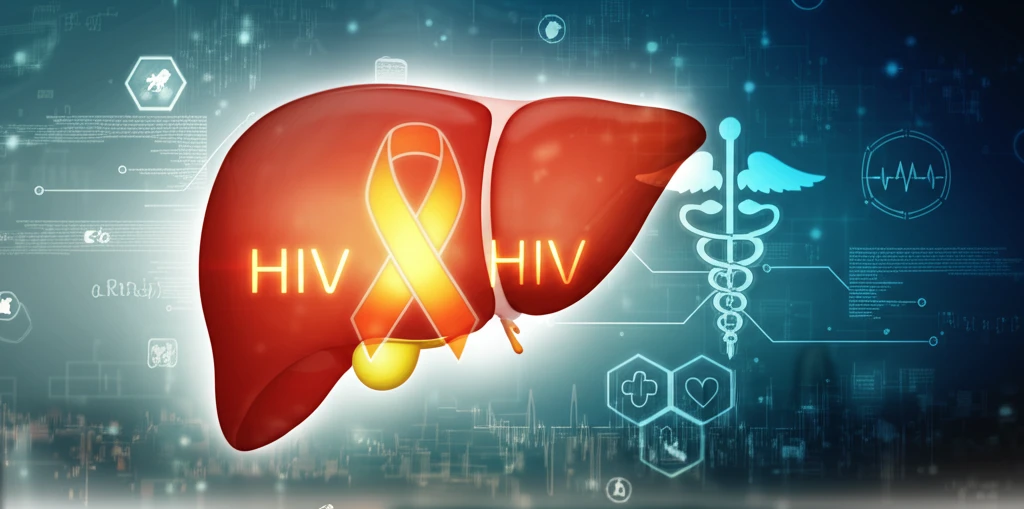
Decoding Liver Cancer: How HIV Status Impacts Treatment and Survival
"Exploring the complex relationship between HIV, liver cancer (HCC), and treatment outcomes to improve patient care and survival rates."
Hepatocellular carcinoma (HCC), a type of liver cancer, is an increasing concern, especially for individuals with viral hepatitis. The rise in HCC diagnoses necessitates a deeper understanding of how different health conditions, such as HIV, affect treatment outcomes and patient survival. This article examines the complexities of treating HCC in patients with and without HIV, focusing on treatment modalities, complications, and survival rates.
The original research utilized case registries to conduct a retrospective review of viral-hepatitis-associated HCC cases from 2000 to 2014. This study captured demographic characteristics, lab values at HCC diagnosis, imaging results, procedural reports, admission records, and outpatient clinical visits to track outcomes and events post-HCC diagnosis. By comparing HCC patients with and without HIV, the study aimed to identify differences in treatment approaches and outcomes.
This article synthesizes the key findings of the research, presenting them in an accessible format for a broad audience. It highlights the challenges and nuances of managing HCC in the context of HIV, offering insights into potential strategies for improving patient care and survival. Whether you're a healthcare professional, a patient, or someone interested in understanding the intersection of these conditions, this article provides valuable information and practical knowledge.
Treatment Modalities and Complications

The study revealed that the most common treatment modalities for HCC included transarterial chemoembolization (TACE), radiofrequency ablation (RFA), and systemic chemotherapy. TACE was particularly prevalent, with a significant number of patients undergoing this procedure. However, TACE-related complications, such as pain, post-embolization syndrome, and infection, were also observed.
- Vigilant Monitoring: Closely monitor HIV-positive patients undergoing TACE for signs of infection.
- Preventive Strategies: Implement proactive infection prevention measures, such as prophylactic antibiotics.
- Individualized Treatment Plans: Tailor treatment plans to address the specific needs and health status of each patient.
Conclusion: Navigating HCC Treatment with HIV
In summary, the research highlights the importance of understanding the interplay between HIV status and HCC treatment outcomes. While overall TACE complication rates may be similar, HIV-positive patients face a higher risk of infections, necessitating careful monitoring and preventive strategies. These findings underscore the need for individualized treatment plans that consider the unique health status of each patient. Further research and collaboration among healthcare professionals are essential to improving outcomes and quality of life for individuals affected by HCC and HIV.
